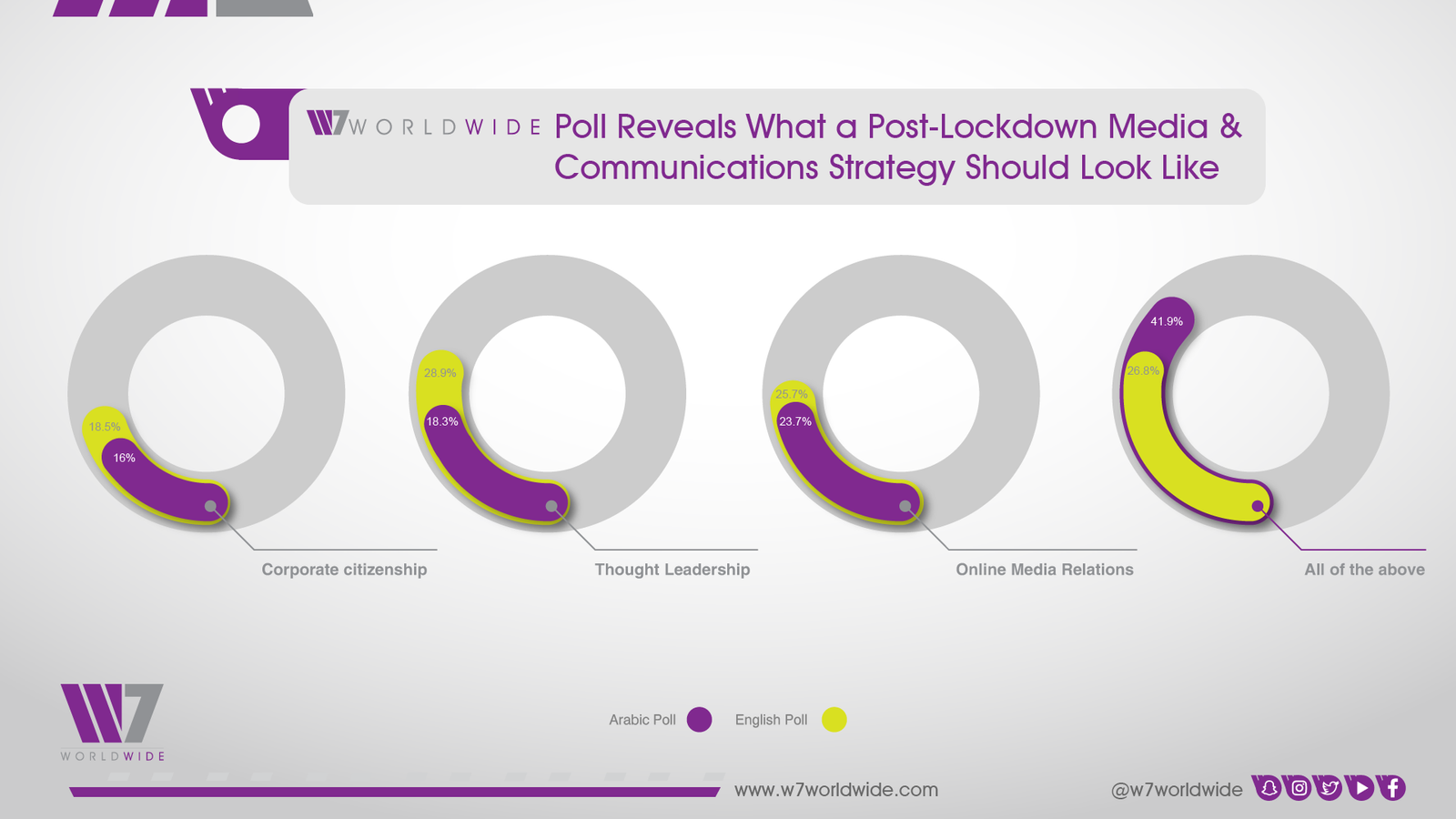
With offices, retail shops, and malls across Saudi Arabia open for business after an intense lockdown, the focus of these companies and retailers is to reach out to customers and develop consumer confidence so as to drive much-needed sales.
An organization’s communications and media strategy plays a crucial role in the achievement of this goal.
Media consumption has changed in the past few months which saw major disruptions to people’s daily lives, with new rules for media and communications strategy evolving in the post-lockdown landscape. What are these rules and what will be the areas of focus of a quintessential media strategy for this new period of “normalcy”?
A recent W7Worldwide poll on Twitter revealed the answers to these questions. The poll asked people: What is your media and communications strategy for the post-lockdown phase? The answers were divided: Out of 1,654 votes, 18.5% of people polled in English and 16% in Arabic chose “Corporate Citizenship,” while 28.9% of English voters and 18.3% of Arabic voters picked “Online Media Relations.” Moreover, 25.7% of English voters and 23.7% of Arabic voters selected “Thought Leadership” while 26.8% of English voters and 41.9% of Arabic voters chose “all of the above.”
While the poll results in English were split, close to half of those polled in Arabic said they would incorporate a combination of all three focus areas in their media strategy.
Corporate Citizenship
The virus outbreak has seen companies – big and small – take their corporate social responsibility very seriously. Corporate citizenship is a term used to describe the contribution a business or organization makes to the local community or society. These contributions refer not only to the company’s core business activities but also to its investments in the local community.
With the ongoing pandemic showing no signs of relenting and in line with global trends, businesses in the Kingdom have made contributions worth millions of dollars to relief packages and measures for those affected and have taken it upon themselves to benefit people facing a financial crunch due to the lockdown. Indeed, COVID-19 has had severe economic ramifications on large segments of society, who could do better with the increased generosity shown by corporates. Such a move not only helps those in need but also generates goodwill for the company.
Online Media Relations
With footfall at physical retail shops decreasing due to COVID-19 restrictions and social distancing guidelines issued by government and health authorities, customers are buying more online and brands and retailers are coming up with innovative PR and deals to attract and engage with this segment of the market. Considering this shift in consumer behavior patterns, businesses should take the necessary measures to ensure business continuity, such as revamping the website to provide the best user experience, improving SEO (search engine optimization) to drive more traffic to the website, reaching out to customers using data analytics and customized ads, and others. Influencer marketing particularly during the pandemic can be useful due to the fact that more people are staying at home for longer periods resulting in increased Internet usage.
Thought Leadership
Thought leaders are experts in a particular field and thought leadership is a tool used by content marketers to support a brand’s credibility and define authority in its industry. The aim is to increase awareness among the target audience, generate leads and increase engagement online. Brands can be recognized as thought leaders in their field by creating and promoting educational and informative content and becoming active in the industry community, particularly on social media. If executed properly, thought leadership can help companies to develop a reputation as a trusted advisor and eventually, generate sales.

